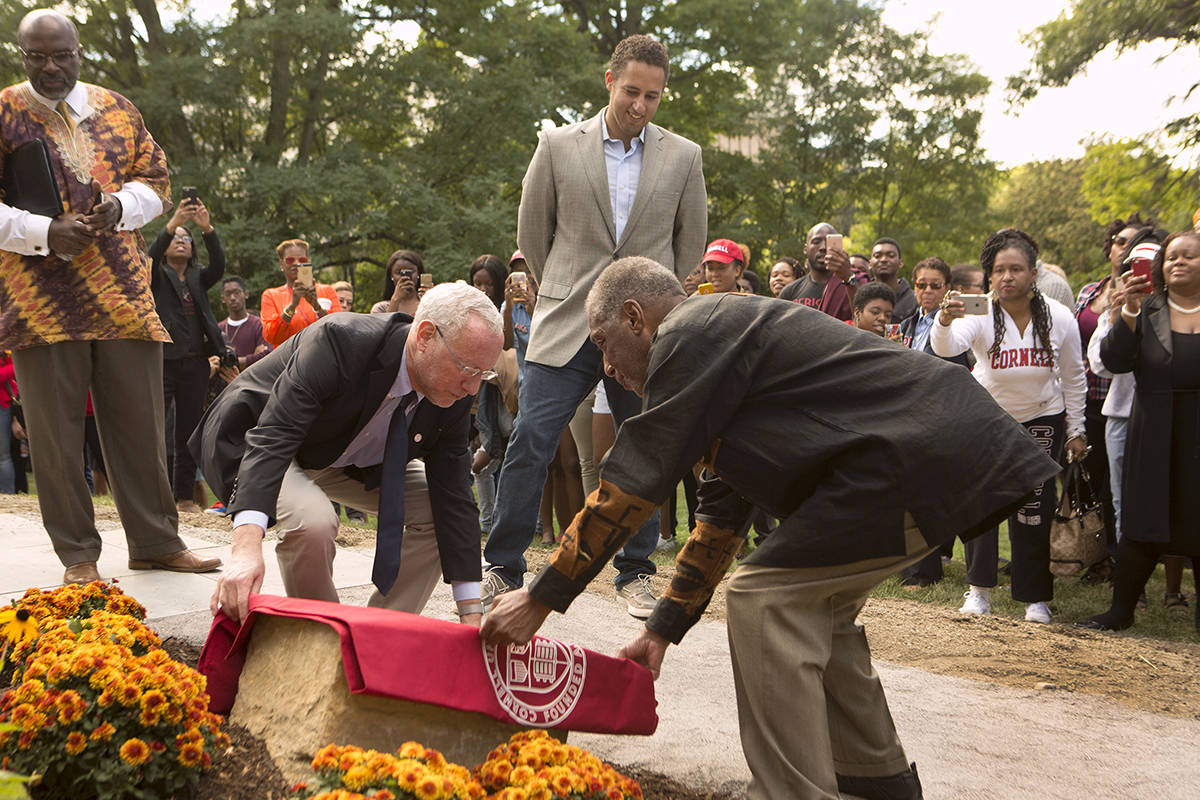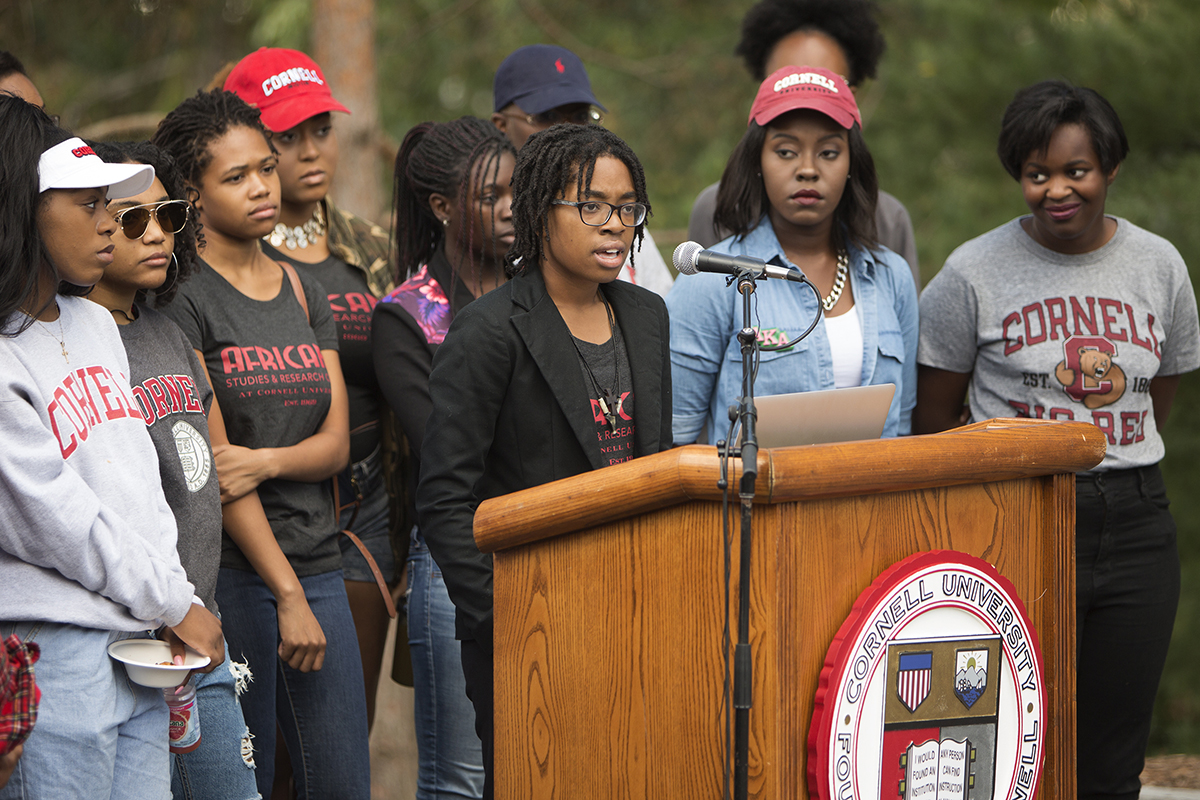Original Africana site dedicated at ceremony
By Daniel Aloi

A plaque commemorating the original site of Cornell’s Africana Studies and Research Center at 320 Wait Ave. was unveiled Sept. 24 following a dedication ceremony with students, alumni, faculty and administrators.
“This site has such significant meaning and symbolism for the history of this university [and] the experience of African-descended people and their allies at Cornell,” said Rev. Kenneth Clarke, director of Cornell United Religious Work.
In April 1969, black student activists and university administrators signed documents on the steps of the site to end the Willard Straight Hall occupation, he said: “Several months later, Africana at Cornell came into being” on the site, and “an arson attack on April 1, 1970, destroyed the building that sat here. On this site today, as a community, we reclaim this space as an important part of the history of Cornell.”
“For the last 46 years, these steps have been their own kind of memorial to what once stood at their apex,” he added. “Yet it has been an incomplete memorial, waiting, yearning for this day.”
Black Students United (BSU) requested the commemoration in a letter delivered to then-President Elizabeth Garrett and Vice President Ryan Lombardi in November 2015. The ceremony coincided with the 40th anniversary gathering of the Cornell Black Alumni Association, held during Homecoming Weekend.
“So many of you, along with many others, helped to create Africana studies at Cornell in the ’60s and the ’70s, and have seen your work develop into the robust Africana Studies and Research Center of today,” said Provost Michael Kotlikoff.
The center “has educated generations of leaders,” he said, and is “a vital center for research, teaching and public engagement.”
Because of student activism at the time, he said: “Black studies, so long neglected, entered the curriculum in many institutions, and higher education became more inclusive as a consequence.”
Kotlikoff also thanked members of Black Students United for their efforts to establish the commemorative site and the Ithaca community of color for their support of the project.
“Today we acknowledge a terrible event that occurred during a troubled time on our campus,” he said. “Not only offices but valuable records, manuscripts and library holdings were reduced to ashes. This was a profound loss for African-American students and faculty who regarded 320 Wait Avenue as their campus home.”

The day also celebrated Africana’s growth and development, and “the achievements of those who have studied there over the years,” Kotlikoff said. “We appreciate as well the leadership role that many students of color play on our campus today.”
“In acknowledging the history of this site, we stand with our current students and alumni and all those who want Cornell to be an inclusive and welcoming environment,” he said.
BSU co-chair Amber Aspinall ’17, joined by others from the organization at the podium, thanked “everybody who had a hand in making this demand a reality,” including Africana for handling logistics, “the organizations and the individuals who stood in solidarity with us, and thank you to the staff, who continue to meet with us.”
Thanking “the students from the late 1960s for the activism that led to the founding of the Africana Center,” Kevin Gaines, the W.E.B. Du Bois Professor of Africana Studies and History and incoming chair of Africana studies, said: “They truly made a difference, democratizing higher education at a time when faculties and administrations were white male domains and curricula were thoroughly Eurocentric and male-dominated.”
“The establishment of Africana studies programs at Cornell and many other universities transformed disciplines and departments,” he said. “Teacher-scholars in Africana studies produced research that put African-Americans and Africans at the center of American history, politics, literatures and culture, and pioneered the critical study of race and racism … We owe our alumni, the student activists of that generation, a great debt.”
Also speaking were Gloria Joseph, Ph.D. ’67, former assistant dean and an Africana professor in 1970, who also directed the Committee on Special Education Projects, the university’s first institutional diversity initiative; Ithaca Mayor Svante Myrick ’09; and Africana’s founding director, Professor Emeritus James Turner.
The student vocal ensemble Baraka Kwa Wimbo sang “Lift Every Voice and Sing” after Kotlikoff and Turner unveiled the plaque, on a landscaped site with a wooden bench.
Media Contact
Get Cornell news delivered right to your inbox.
Subscribe